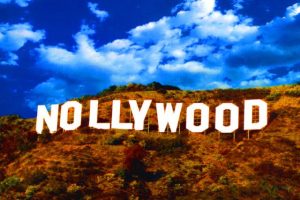Africa’s dynamic youthful population and civil society will challenge autocratic misrule and strive to fulfil the continent’s huge potential in 2024. Its “soft power” will shape global culture through lyrical writers, Afrobeats, Nollywood, and sporting superstars, with citizens of Global Africa set to shine at the Paris Summer Olympics.
The continent will, however, be forced to focus disproportionately on challenges of conflict and climate change. Having spent $1 billion staging the Africa Cup of Nations football tournament, Côte d’Ivoire’s president, Alassane Ouattara, could enjoy a political bounce from winning the tournament. With the announced exit of military brass hats in Niger, Mali, and Burkina Faso from the Economic Community of West African States (ECOWAS), regional integration in West Africa faces its sternest test in 50 years.
Nigeria’s floating currency has lost 68 per cent of its value, even as Abuja remains unable to stabilise its country and subregion. Democratic governance also remains under siege across West Africa, with Senegalese President, Macky Sall’s cynical attempt at staging a civilian coup d’état by awarding himself a constitutionally dubious 10-month extension in office, appearing to have been obstructed by the country’s Constitutional Court.
Sall had earlier jailed popular opposition leader, Ousmane Sonko, for “corrupting the youth”: the same charge for which Greek philosopher, Socrates, was executed in 399 BC.
Amidst fears of regional drought, Southern Africa’s dominant liberation parties will stubbornly seek to cling to power, with South Africa’s weakened ruling African National Congress (ANC) determined to cobble together a governing coalition after May 2024 polls. Despite some concrete socio-economic achievements, for the first time in 30 post-apartheid years, the ANC’s majority could fall below 50 per centfrom a high of 69 per cent in 2004. A failure to tackle increasing graft, and the deterioration of electricity, road, rail, and port infrastructure has contributed to a sense of atrophy, shattering the myth of ‘South African exceptionalism’. Ruling parties are also expected to triumph in polls in Botswana and Namibia.
Driven by Kenya, Uganda, and Tanzania, the East African Community (EAC) has been one of the most successful of Africa’s regional schemes, helping to connect the subregion through railway, road, port, and pipeline projects. Paradoxically, however, Eastern Africa will remain threatened by widespread displacement, drought, and famine, even as ‘warlordism’ continues in Sudan, South Sudan, Somalia, and Ethiopia amidst some fragile truces.
Ethiopia’s attempts to recognise Somaliland’s sovereignty in order to gain access to the sea, will continue to raise tensions with Somalia. Rwanda’s Paul Kagame will award himself another 90 per dcent victory in presidential polls, having eliminated all serious opposition. His Western donors will yawn, and look the other way.
Militia-infested eastern Congo and Central African Republic will continue to struggle with massive population displacements following Félix Tshisekedi’s second controversial electoral victory in five years. The Congo’s ‘forum shopping’ of replacing EAC with Southern African Development Community (SADC) peace-enforcers in the eastern Congo while expelling United Nations (UN) peacekeepers, is unlikely to bring stability.
Military brass hats in Chad and Gabon will continue unconvincing democratic transitions, while long-ruling autocrats in Cameroon, Congo-Brazzaville, and Equatorial Guinea will seek to hang on to nepotistic power, even as their countries continue to decline.
North Africa will continue to suffer socio-economic stagnation, as entrenched military-backed regimes in Egypt, Algeria, and Tunisia resist civil society efforts to liberalise autocratic political systems.
Abdel Fattah el-Sisi’s predictable 90 per cent presidential victory in December polls will not stabilise a regime threatened by public debt of 89 per cent of GDP and Israel’s continuing brutalities in the Gaza Strip, with which Egypt shares a border.
Morocco is recovering from last year’s Atlas mountains earthquake and building impressive infrastructure, but its historical conflict with Algeria over Western Sahara will ensure continuing regional tensions. Libya will remain politically divided, even as it hopes to avoid a repeat of last year’s devastating floods.
With a $1.1 trillion debt, crippling interest payments, increasing IMF tutelage, and meddling external powers like America, France, and Russia, Africa will continue to experience mixed fortunes in 2024.
Professor Adebajo is a senior research fellow at the University of Pretoria’s Centre for the Advancement of Scholarship in South Africa.
Source
Disclaimer: No copyright infringement intended. All rights and credits reserved to respective owner(s).






















Add Comment